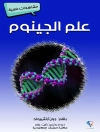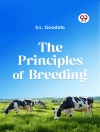A pioneering scientist presents a mind-expanding account of the sociogenomics revolution, which promises to upend everything we know about human development.
For more than 150 years, the question of nature versus nurture has been one of the most contentious issues in the human sciences. On the one side are “blank-slaters, ” who believe we are mainly shaped by our environment. On the other side are “hereditarians, ” who believe in the primacy of genes. From the start, the fight has been highly politicized and extremely bitter, given that it has implications for how we think about racial disparities, meritocracy, reproduction, and free will itself. In The Social Genome, pioneering scientist Dalton Conley demonstrates that this longstanding debate is fundamentally misguided. The true question is not nature versus nurture, but how nature and nurture interact to make each of us who we become.
The Social Genome is a sweeping account of the sociogenomics revolution, which has, in the last decade, upended many of our notions about human development. Sociogenomics brings together advances in molecular genetics and traditional social and behavioral science. The key tool is the polygenic index, which allows us to analyze DNA to measure a child’s genetic potential. Today, we can estimate a child’s adult height, how far they will go in school, and their weight as an adult—all from a cheek swab, finger prick, or vial of saliva. Conley and other researchers are using this new science to shed light on the ways in which genes shape our world, influencing how each person both creates and responds to the environment around them. Conley reveals a world where children’s DNA influences the nurture they extract from their parents; the genes of our schoolmates affect our likelihood of smoking as much as our own DNA does; and spouses’ genes influence each other’s moods and behaviors. Looking forward, Conley envisions a future where dating, education, public health, and other institutions have been radically altered by the sociogenomic revolution.
As Conley argues, we should no longer think of nature versus nurture, but about how our genes seek the nurture they need to express themselves and how, in turn, our environments are made partly from the genes of other people. The Social Genome presents a nuanced, powerful perspective on individual potential and social dynamics and raises critical ethical questions about how we will navigate a future where we have access to far more genetic information than ever before.
Giới thiệu về tác giả
Dalton Conley is a professor at Princeton University. He is a member of the National Academy of Sciences and in 2005 received the National Science Foundation’s award for best young scientist, mathematician, or engineer.












